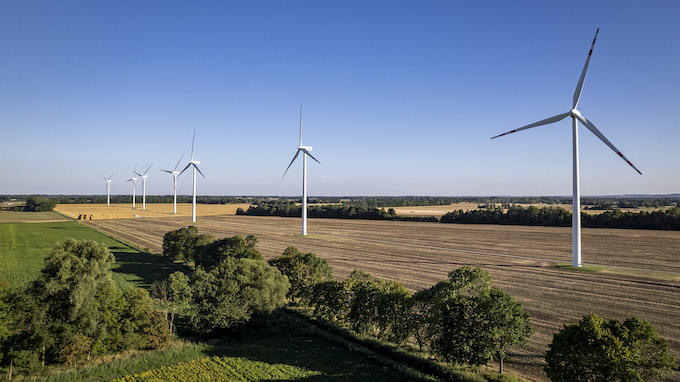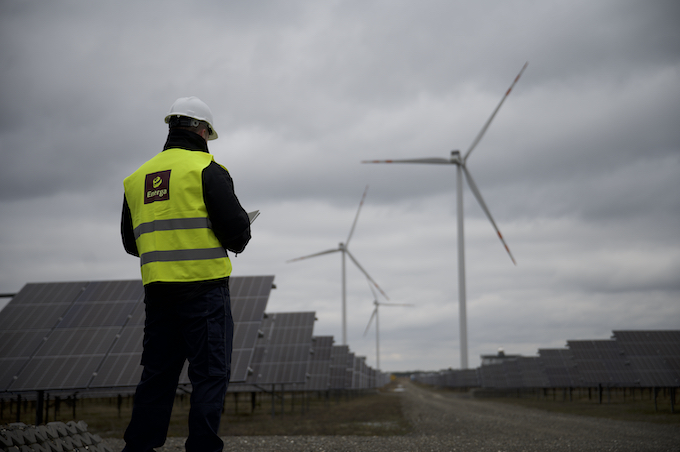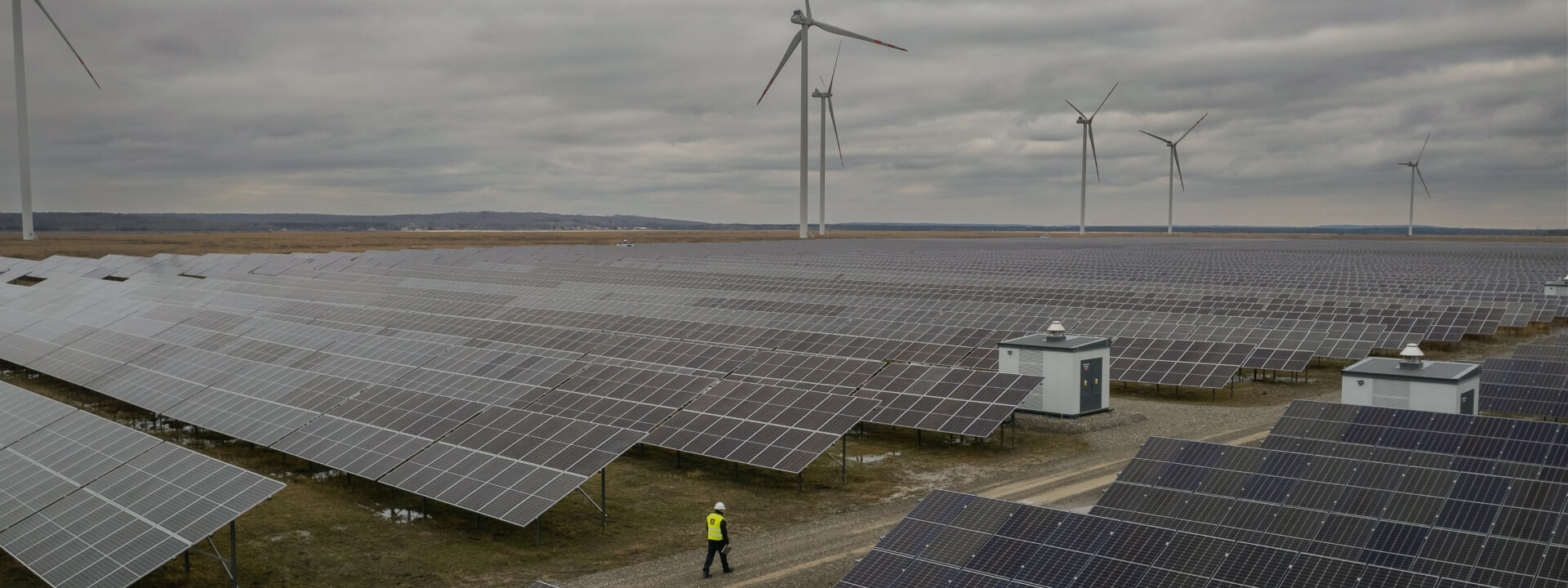Organisational details
Business model
ORLEN Group and ORLEN
- 2-1
- 2-6
Activities, value chain and other business relationships
ORLEN S.A. ("ORLEN", "Parent Entity", "Company") was established on 7 September 1999 as a result of the merger of Petrochemia Płock SA ("Petrochemia Płock"), a producer of refinery and petrochemical products in Poland, and Centrala Produktów Naftowych CPN S.A. ("CPN"), a distributor of motor fuels in Poland. Until 3 July 2023, it was called ORLEN S.A.
Prior to the merger, the shares of Petrochemia Płock and CPN were owned by the State Treasury, Nafta Polska SA ("Nafta Polska") and employees of the merged companies. ORLEN shares debuted on the Warsaw Stock Exchange on 26 November 1999. On 12 April 2000, ORLEN changed its name from Polski Koncern Naftowy SA to Polski Koncern Naftowy ORLEN S.A.
On 3 July 2023, the company changed its name to ORLEN S.A. The name change is a consequence of the acquisitions of Grupa ENERGA, Grupa LOTOS and PGNiG carried out in recent years and the adoption of a new development strategy for the ORLEN Group. It corresponds to the current business profile and development plans of the company. The decision of the Ordinary General Meeting taken on 21 June 2023 entered into force on 3 July 2023, at the time of registration of the change in the National Court Register.
In 2022, ORLEN closed its mergers with the PGNiG Group (in November) and with the LOTOS Group (three months earlier), which marked the establishment of Central Europe’s largest energy group ranking among top 150 companies in the world by revenue and serving more than 100 million customers. Over the fourth quarter of 2022, ORLEN was successfully implementing the merger remedies agreed with the European Commission as a condition to its acquisition of LOTOS Group. For example, it finalised a series of transactions with Saudi Aramco, of which an integral part was an agreement on crude oil supplies to the entire combined ORLEN Group, not only in Poland, but across the region. ORLEN, Saudi Aramco and its subsidiary SABIC also signed a memorandum of understanding to cooperate on a potential petrochemical project in Gdańsk. Some of the merger remedies were implemented in the retail segment. The ORLEN Group acquired and began to rebrand 79 fuel stations in Hungary, previously branded as Lukoil. The Group will additionally purchase 103 fuel stations located in Slovakia and Hungary by mid-2024. In the fourth quarter of 2022, the ORLEN Group also launched a process of rebranding and integrating LOTOS service stations into its Polish network.
ORLEN, together with companies forming the Polski Koncern Naftowy ORLEN Group (the ‘ORLEN Group’, the ‘Group’), is one of the largest and most modern multi-utility groups in Central Europe, operating in Poland, Lithuania, Czech Republic, Slovakia, Germany, Canada and Norway. The Group also has operations in Malta, Sweden, Hungary, Cyprus, Estonia, Switzerland, the United Kingdom, the United Arab Emirates, Libya, Pakistan, the Netherlands, Belgium, Austria, France, Croatia, Ireland, Colombia, Tanzania, Mozambique, Ukraine, Latvia, and China.
The ORLEN Group’s core business consists in electricity generation, distribution and trading, crude oil processing, production of fuels, petrochemicals and chemicals, wholesale and retail sale of the Group’s fuel products, as well as storage, marketing and distribution of gaseous and liquid fuels. The Group operates in the areas of exploration, appraisal, production and import of hydrocarbons.
ORLEN Group companies provide a variety of services: crude oil and fuel storage, transport, maintenance and repair, laboratory, security, design, administrative, courier, press distribution, insurance, financial, and media (newspapers and Internet website) services.
The Group was also engaged in continued projects to harness renewable energy sources, including development of an offshore wind farm. A strategic decision was made to build an offshore installation terminal for offshore wind farms in Poland, the first such installation on Poland’s territorial sea. The terminal will be located in the Port of Świnoujście and will be one of the most advanced facilities of this kind in Europe. The joint venture project between the ORLEN Group and Northland Power will use 76 state-of-the-art 15 MW turbines from Vestas, whose components will be manufactured at the supplier’s new plant in Szczecin. The turbine manufacturing plant, to be manned by a staff of 700, is scheduled for completion in 2024, while the ORLEN Group’s installation terminal at the Port of Świnoujście will commence operations in 2025.
At the end of 2022, the ORLEN Group also completed a project to construct one of Poland’s largest solar PV farms, located near Wielbark (Province of Olsztyn). The 62 MW solar farm will generate clean energy sufficient to power more than 30 thousand households. At the same time, work is under way to build another solar farm, with a capacity of 65 MW, in Przykona (Province of Poznań), with the construction scheduled to start in the middle of 2023. The Group is also investing in biogas and biomethane production, building Poland’s first green biogas plant to make a real contribution to reducing CO2 emissions from heavy goods transport.
The pilot plant being built in Głąbowo (Province of Olsztyn) will produce over 7 million cubic metres of biomethane annually, which will then be converted into fuel, bioLNG. This volume allows a truck to travel 22 million kilometres.
The ORLEN Group is also successful in its upstream oil and gas activities. In December 2022, PGNiG Upstream Norway and LOTOS Exploration & Production Norge were awarded interests in four exploration licences on the Norwegian Continental Shelf. Together with the latest awards, the ORLEN Group now holds 98 licences in Norway.
Despite allocating billions of złoty to new investments, the Group managed to reduce its debt by PLN 14.5bn (y/y), with the ratio of net debt to EBITDA at (-) 0.08x. In view of ORLEN’s successful merger with Grupa LOTOS and PGNiG and stable financial position, the Company was assigned the highest rating ever. Moody’s Investors Service upgraded ORLEN’s rating to A3, while Fitch Ratings upgraded ORLEN’s Long-Term Issuer Default Rating (IDR) by two notches, to BBB+. Given its sound financial footing and steady implementation of business objectives across all areas of operations, on October 3rd 2022 ORLEN paid dividend for 2021 in the amount of PLN 3.5 per share, that is at a level consistent with the Group’s strategy.
We are embarking on the transformation process with a strong asset base and sound financial position.
Results
278
revenue
30.9
operating cash flow
64,494
number of employees as at December 31st 2022
46.9
EBITDA LIFO1
19.7
capital expenditure
33.6
net profit
1.5
dividend for 2021
1 For definitions of the financial indicators, see Glossary of selected industry and financial terms.
Financial security
(-) 0.08
net debt / EBITDA
BBB +
Fitch rating
Issue of 2
bonds linked to ESG rating in circulation
A3
Moody's rating
Issue of 500
green Eurobonds in circulation
180m
credit facility agreement with the European Investment Bank
Strong asset base
7
in Poland, the Czech Republic and Lithuania, integrated with petrochemical operations
5.1
of installed power generation capacity
Nearly 100
the Group’s operations focus on Central Europe, Norway, Canada and the Middle East
Some 3,100
in Poland, Germany, the Czech Republic, Slovakia, Lithuania and Hungary
191,000
of oil and gas production in Poland, Norway, Canada, Pakistan and Lithuania
0.7
of existing onshore renewable capacity and a portfolio of new assets
Multi-utility group
In response to the energy transition, sector companies need to evolve into more sustainable and diversified multi-utility businesses.
In their progress towards that end goal, energy companies have a relatively clearly defined path to follow. Indeed, they should already be implementing processes designed to support their transformation into greener and more sustainable organisations through investment in renewable energy sources, network upgrades, energy efficiency improvements and rollouts of customer-friendly solutions. The situation looks slightly different for companies operating in the oil and petrochemical industry. While medium-term market forecasts show potential for its further growth in the coming years, in the long run the sector will need to eventually tackle the challenge of the energy transition. Oil and petrochemical companies have so far pursued business models hinging on various links of the oil value chain, which begins with exploration and production.
Produced or purchased crude oil is refined into petroleum products, including fuels, oils, lubricants, bitumens and petrochemical feedstocks used to produce plastics and other goods. However, the energy transition is increasingly making the existing linear oil and petrochemical business models obsolete, forcing companies with decades worth of market experience to undergo a gradual transformation. The ever tighter emission regulations will be putting pressure on producers to reduce emissions associated with both manufacturing processes and final products.
Transport electrification and similar trends will affect demand for fuels over time. The drive towards recycling and curtailment of plastic consumption will hit the production of basic petrochemicals and plastics. Consequently, the model of an integrated multi-utility group addresses the challenges of the energy transition, providing for the achievement of operational excellence in the existing oil and petrochemical businesses and their alignment with the changing reality and, on the other hand, for diversification towards the most promising areas that will gain prominence as the energy transition progresses: renewable energy, low-carbon conventional power generation, nuclear sources, new transport technologies, recycling, biofuels, hydrogen economy and integrated retail offerings.
The energy transition is the key theme of the ORLEN Group strategy to 2030.
1 For Scope 1 and Scope 2 emissions
Read also:
Short-cuts:
ORLEN Group 2022 Integrated Report
You can also download the report in PDF format





